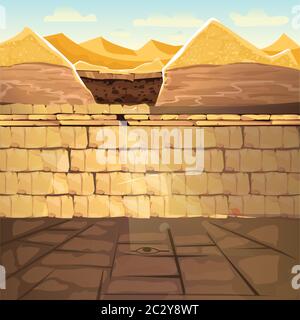
The trek took an hour and a half round-trip, further requiring them to stay in these huts. To walk back to their village for a mid-day break was also out of the question. Plus, in the winter, there were sometimes only 10 hours of sunlight during the day. The path back to the village was far too treacherous to follow after dark so they would stay in huts on a ridge aboveut the Valley of Kings.

Workmen’s Hutsįrom these findings, archeologists learned that during the workweek, which was ten days long back then, the men who worked on the tombs didn’t go home at night. The large, deep pit was a treasure trove, shedding light on the lives of these ancient people – more details than what has been found of any other Egyptian community.

The residents of Deir el-Medina had a garbage pit where they disposed of documents and drawings that were inscribed on limestone and pottery. They used strict record keeping to divide labor and resources, which they monitored carefully and with impressive precision. The men who built the tombs in the Valley of Kings lived together in a village called Deir el-Medina working in a system similar to the modern production line.

But, on the contrary, we know much about these people, their habits, and how they worked from the waste they left behind. If you’re not an archaeologist, it may seem unlikely that we could know anything about these people who lived thousands of years ago. We Learned About Their Lives and Work from Their Trash.


 0 kommentar(er)
0 kommentar(er)
